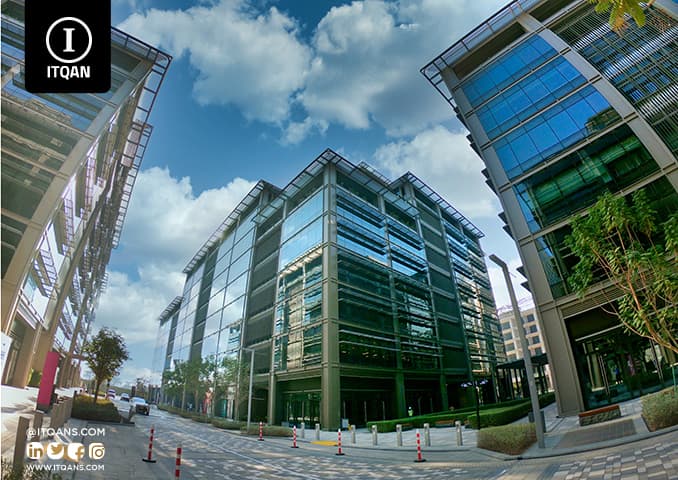Establishing a company in a free zone in the UAE is a distinct strategic step for many businessmen and investors. The free zones in the UAE provide a favorable business environment that contributes to achieving success and growth, thanks to the facilities and privileges they offer. These zones provide investors with wide opportunities for expansion and innovation thanks to full tax exemptions, full foreign ownership, and the absence of the need for a local partner. In addition, the free zones provide advanced infrastructure and excellent logistics services, which enhances the ability of companies to achieve their business goals efficiently. In this article, we will discuss the most important steps and procedures for establishing a company in a free zone , and how to benefit from the advantages it provides to achieve success in the UAE market.

Establishing a company in the free zone
Table of Contents
ToggleSteps to establish a company in the free zone
Establishing a company in a free zone requires following specific steps to ensure compliance with applicable rules and regulations. Here are the basic steps to establish a company in a free zone:
- Select Business Activity: Select the type of business activity you wish to conduct. This will determine the type of license you need.
- Choosing a Free Zone: Choose the free zone that best suits your business. Each free zone offers different benefits depending on the type of business.
- Company Registration: Apply to register your company in the selected free zone. You will need to provide basic documents such as your passport, a copy of your lease (if you have an office), and a business plan.
- Preparing legal documents: Prepare required legal documents such as company articles of association, signing powers, and partners’ agreements if any.
- Obtaining a license: Apply for a commercial license from the responsible authority in the free zone. The license includes the type of business activity and the company’s field of work.
- Open a bank account: Open a bank account for the company at one of the approved banks. You will need to provide documents proving the company’s registration and license.
- Office furnishing: Furnish your office and provide the necessary infrastructure to operate. Some free zones offer temporary office services or ready-made office spaces.
- Register with relevant authorities: Register your company with the relevant government authorities if necessary. This may include registering with the Chambers of Commerce or any other relevant body.
- Employment and Insurance: If you intend to hire employees, make sure you comply with all local labor laws and obtain the necessary insurance.
- Starting Operations: After completing all the above steps, you can start business operations and expand according to your business plan.
- Be sure to check the specific requirements of each free zone, as they may vary slightly based on location and business activity.
Types of free zones
The UAE is characterized by the diversity of free zones that offer different opportunities for investors and businessmen, making it an attractive destination for establishing companies. Free zones are divided into several types, each of which specializes in a specific type of business activity. For example, there are free zones that focus on technology and innovation, such as Dubai Internet City and Dubai Media City, which provide an ideal environment for technology companies and media outlets. As for the Jebel Ali Free Zone, it is characterized by its focus on industrial and logistics activities, making it suitable for companies that require advanced infrastructure for storage and distribution.
On the other hand, Sharjah Free Zone is an attractive hub for SMEs, offering incentives to investors such as tax exemptions and licensing facilities. In Abu Dhabi Free Zone, competitive advantages are available to companies operating in the financial and medical sectors. Each free zone offers unique advantages based on its own activities and market requirements, giving investors a wide range of options to meet their business needs and expand their businesses successfully.
The importance of a commercial license to establish a company in the free zone
The commercial license is one of the basic elements for establishing a company in the free zone, and it has great importance that is evident in several aspects:
- Legality: A commercial license is an official document that gives a company legal status and allows it to conduct its business activities legally. Without a license, a company cannot conduct business or contract with customers or suppliers.
- Government Facilities: Obtaining a commercial license allows the company to benefit from government facilities available in the free zone, such as tax exemptions and customs privileges. These facilities contribute to reducing costs and increasing the company’s competitiveness.
- Compliance with regulations: A commercial license ensures that the company adheres to local and international regulations and laws related to its activity, which reduces legal risks and improves its reputation in the market.
- Financing and Banking: A business license provides the necessary foundation to open a business bank account, making it easier for the company to conduct financial transactions, including receiving payments and settling expenses.
- Expansion and Growth: The commercial license allows the company to expand in the future, by opening new branches or expanding into new markets, thanks to enhancing its credibility and operational efficiency.
- In general, the commercial license is one of the foundations on which the success of companies in the free zones is based, as it provides them with a legal and regulatory framework that helps them achieve their goals efficiently and effectively.
Cost Factors of Establishing a Company in a Free Zone
Determining the cost of establishing a company in the free zone depends on several main factors, including:
- Type of Business: The type of license required varies depending on the business activity the company will be operating. Different businesses require different types of licenses, which affects the cost.
- Free Zone: Each free zone has its own structure of fees and charges. Some free zones may be more expensive than others depending on their location and the services they offer.
- Office Space: The cost of renting office space or desk has a significant impact on the overall cost. Prices may vary depending on the size of the office and location within the free zone.
- Registration and Licensing Fees: These fees include the costs of registering the company and obtaining a business license. These fees may vary depending on the type of license and field of activity.
- Additional Services: Companies may require additional services such as legal translation, advocacy, or financial consulting, and these services increase the overall cost.
- Labor and Staffing: Staffing costs include salaries, social security, and health insurance for employees. These costs depend on the number of employees and insurance requirements.
- Office furnishings: The costs of furnishing the office and the equipment necessary for the work such as computers and furniture.
- Government fees: include any additional fees that may be imposed by government agencies or local authorities within the free zone.
- Operating costs: These include ongoing costs such as utility bills, rent, and maintenance.
- With proper planning and understanding of all the factors involved, the costs of setting up a company in a free zone can be managed efficiently, contributing to the successful achievement of business objectives.
In conclusion of our article on establishing a company in a free zone , it is clear that this option provides tremendous opportunities for investors and businessmen who wish to enter the UAE market and benefit from the advanced business environment. Free zones in the UAE offer a variety of benefits that include tax exemptions, full foreign ownership, and legal and administrative facilities, making them an ideal environment for business growth and expansion. By understanding the basic steps and costs associated with establishing a company, investors can make informed decisions that contribute to achieving commercial success. Proper planning and choosing the right free zone according to the company’s activity and needs are essential factors to ensure the success of the process and avoid any future challenges. Therefore, establishing a company in a free zone is a strategic step that can add value and enhance companies’ ability to achieve their commercial and innovative goals in a growing global market.
Frequently asked questions about establishing a company in the free zone
Can I own 100% of the company if I am a foreigner?
Yes, in most free zones, you can own the company 100% without the need for a local partner.
What are the main costs associated with setting up a company in a free zone?
Major costs include licensing fees, office rent, registration costs, and government fees, as well as operational costs such as salaries and furniture.
Are there any restrictions on the number of activities a company can engage in?
Yes, some free zones may impose restrictions on the number of business activities permitted under the license. The activities must be specified precisely when applying.














